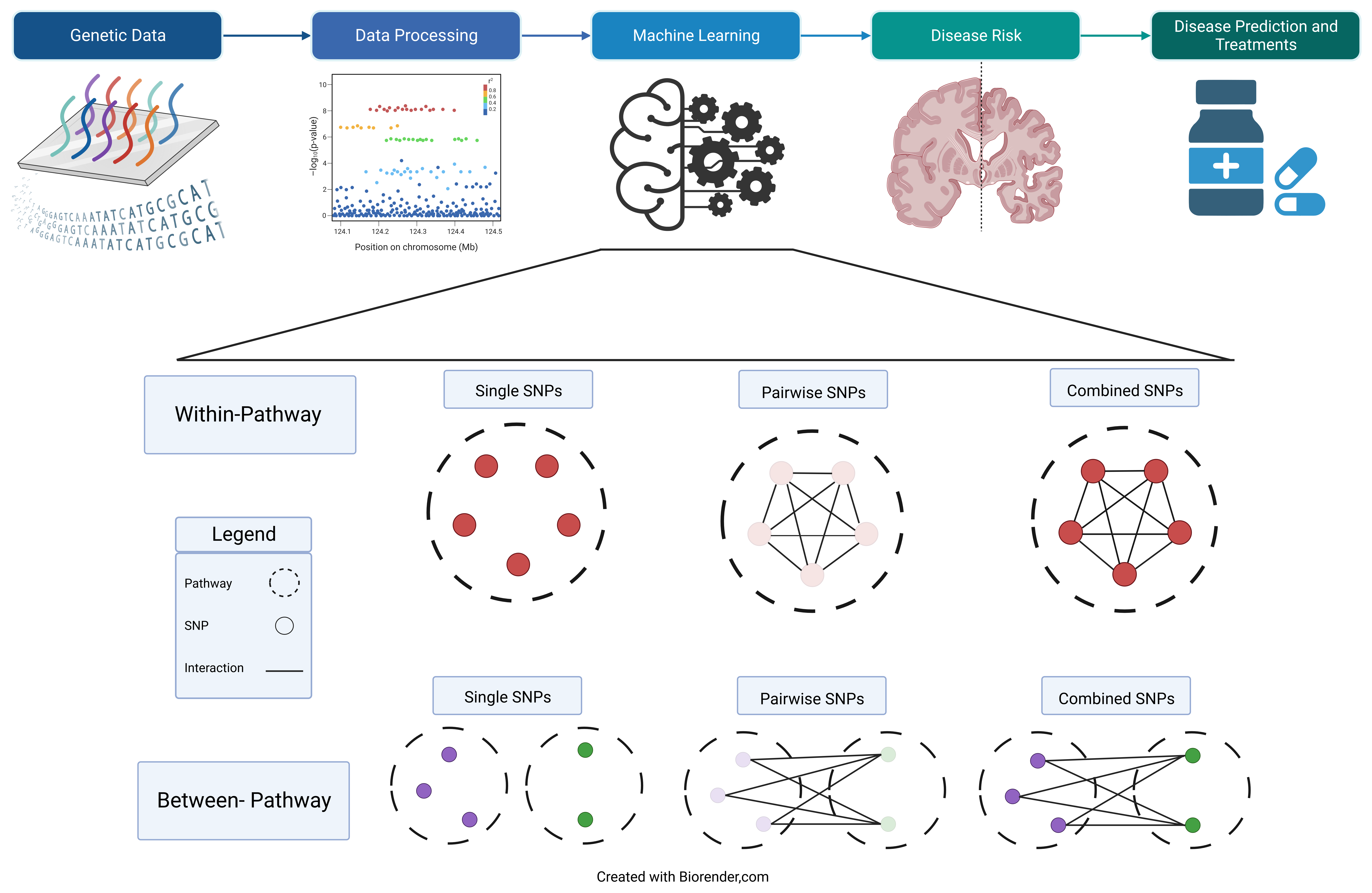Genome-wide association studies (GWAS) use DNA to find statistical associations with diseases that can help us better understand the underlying genetic basis for diseases. GWAS has been successful in discovering many new genetic locations associated with diseases. Still, we cannot accurately predict who will get a disease with what has been discovered from GWAS. One reason for this is that many interactions between genes are not considered in traditional GWAS, and these genetic interactions could be part of what is missing from accurate disease risk predictions.
The lab of Professor Chad Myers (Computer Science and Engineering; Masonic Cancer Center; MSI PI) has previously shown that genetic interactions underlying human diseases form structured networks connecting within and between biological pathways. The lab has developed a method called BridGE that has been successfully applied to systematically discover complex genetic interactions from human genotype data for multiple diseases. Using these genetic interaction principles learned from BridGE, PhD student Mathew Fischbach (Bioinformatics and Computational Biology PhD program, Computer Science and Engineering) is developing a machine-learning approach for predicting individuals’ disease risk from genetic sequences that use pairwise genotype information and curated gene sets (e.g., pathways). The project is called “Enhancing Parkinson’s Disease risk prediction with genetic interaction-based machine learning models.” Preliminary results suggest that models that include mutational pairs as features can improve predictions for Parkinson’s Disease. Overall, the proposed project has the potential to demonstrate the utility of incorporating combinations of genetic interactions into disease risk prediction models that can help explain why we get diseases. Research using BridGE was described in a Grand Prize-winning poster at the 2017 MSI Research Exhibition.
Some funding for this project was provided by a DSI-MnDRIVE PhD Graduate Assistantship. The DSI-MnDRIVE Graduate Assistantship program supports U of M PhD candidates pursuing research at the intersection of data science and any of the five MnDRIVE areas:
- Robotics
- Global Food
- Environment
- Conditions
- Cancer Clinical Trials
Projects in this program must align with one of the Data Science Tracks:
- Foundational Data Science
- Digital Health and Personalized Health Care Delivery
This project is part of the Brain Conditions MnDRIVE area and the Digital Health and Personalized Health Care Delivery Data Science track. See the complete list of the RC-MnDRIVE Graduate Assistantships.
